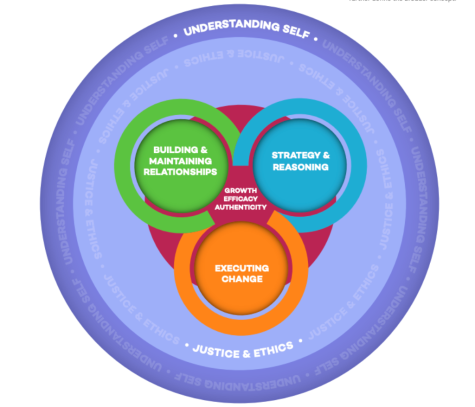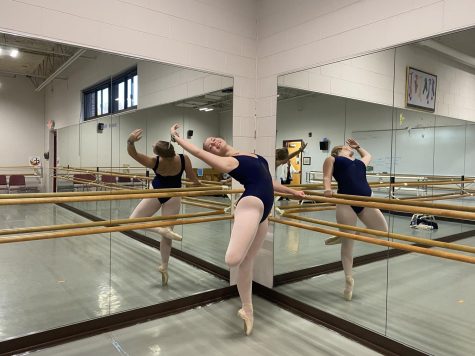On Using Your Voice in a Politicized World
November 15, 2018
I live in Southwest Minneapolis, just a few doors down from R.T. Rybak, the former mayor of Minneapolis and a prominent member of the Democratic National Committee. I attended grade school a mile from my house, and, like those in my neighborhood, many of my classmates and their families were similarly liberal. Urban areas tend to lean to the left, and my values are no exception (but please do not stop reading here if you do not agree with my viewpoint – in fact, that is exactly why I need you to listen). When I considered high schools, I knew that if I came to Vis, for the first time in my life, I would be entering a community where my views would likely be the minority. The end of President Obama’s second term was imminent, which opened an entirely new door in American politics, or more specifically, allowed an unconventional candidate to become the next Commander in Chief.
I was not happy. I cried many times on November 9, 2016, and I went on a run that night along Minnehaha Parkway to allow my anger to dissipate, where I saw a Trump sign burning on a stake. I know what it feels like to think that you do not have a voice, and I know many other girls similar in beliefs to mine felt the same. We cried together.
Slowly, however, that grief over the country we felt we lost turned to purpose. Anger at the system is the most effective form of encouraging individuals to speak up – look at the record-breaking voter turnout for this year’s midterm elections. Liberals were never in the majority at Vis, but they certainly became more outspoken after the 2016 election. What I have learned is that it is easy to remain quiet and complacent when your values and beliefs are largely represented on a national scale; it becomes necessary to speak up when they are not.
I know many feel the tide has now turned; some believe that liberals are the majority, or that their viewpoint cannot be heard if it is not like mine or those who think like me. That was neither our desire nor our goal. We simply did not see our faces represented anymore in those of our leaders, our thoughts in their words. The House, Senate, and Oval Office all became the new brand of Republican, irrevocably changing the world of American politics, and with it, our place in the system, which caused our voices to become louder. Politics became personal, and they continue to challenge our relationships with those around us.
We want to hear everyone’s opinions and thoughts. We recognize that all viewpoints are nuanced and complex. We must have these difficult conversations to build a stronger community, state, nation, and world. Speaking up is never meant to be comfortable. However, in order to hear your voices, you must be willing to share them. If your opinions are not any of mine, all the better – tell me why you think the way you do. I will always respect your right to your opinion so long as it respects the existence of others.
Please write for the paper; if an issue matters to you, let us know (email [email protected] or simply come talk to me), and you can write about it. Talk to your classmates, friends, peers, parents, and teachers about current events. Watch and read the news to better understand our world and your responsibilities to it. Know that not everyone will agree with you, but the point is to challenge the system if you see something wrong with the way it functions. You have your own power, privilege, and voice – use them. Do not simply complain or walk away, but take action. It’s what we did, and if you are upset about our voices reverberating louder, utilize yours, and be willing to listen. Vis is uniquely reflective of the real world in this way – we have intense, and often polarizing, disagreements, and this will not change after we leave these halls. This school represents a small microcosm of our nation, but that does not make your views any less important or the issues any less significant. The world in which we live is divisive, opinionated, and politicized, and I encourage you not to shy away from conflict, but to embrace your opportunity for change.


















